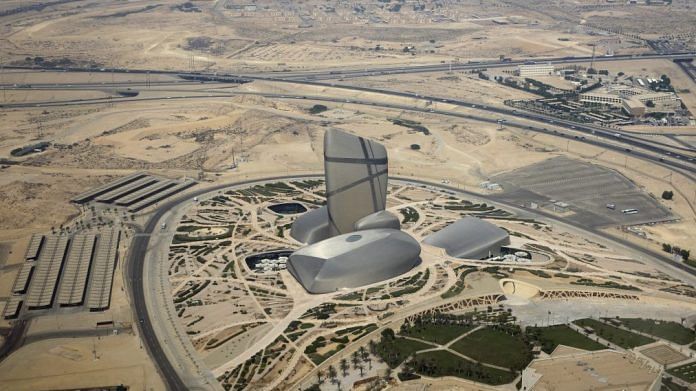Kuwait/Dubai: Saudi Arabia and Qatar are nearing a preliminary deal to end a rift that’s dragged on for more than three years, prodded by a Trump administration seeking foreign policy wins during its waning days in the White House, three people with knowledge of the talks said.
The tentative agreement does not involve the three other Arab countries that also severed diplomatic and trade ties with Qatar in June 2017 — the United Arab Emirates, Bahrain and Egypt. A fourth person said a broader realignment remained a long way off as the underlying issues, such as Doha’s relations with Tehran, remained unresolved.
The potential breakthrough follows months of intense diplomacy mediated by Kuwait, which reached fruition with a final push from President Donald Trump’s son-in-law and Middle East envoy Jared Kushner, who visited the Gulf this week. The rapprochement is likely to include reopening air space and land borders, an end to the information war Qatar and Saudi Arabia have waged and other confidence-building steps as part of a detailed plan that to gradually rebuild relations, two of the people said.
Saudi Arabia and the UAE were the driving force behind the boycott, which divided the world’s top oil-producing region, rerouting air traffic and disrupting trade and business. The UAE has been more reluctant to patch up its ties with Qatar, however, preferring to focus on building its nascent ties with Israel while carefully avoiding any escalation with Iran, diplomats and analysts said.
In contrast, Saudi Arabia is concerned the incoming Biden administration will exert less pressure on the Islamic Republic than Trump, leaving its oil facilities more exposed, they said, and is increasingly at odds with its ally over OPEC policy.
Driving that re-evaluation were the economic hardships dealt by the coronavirus pandemic and Trump’s failure to provide military cover after an attack last year on a major crude processing complex deep inside Saudi territory.
“The shock of the attacks, and the lack of an overt U.S. response to them, led to an overdue reassessment that the real threat to Saudi security came not from Doha but from other actors in the region,” said Kristian Ulrichsen, Middle East fellow at Rice University’s Baker Institute for Public Policy.”
Diplomacy
The boycotting countries had accused Qatar of bankrolling militant groups and undermining regional attempts to isolate Iran, whose regional and nuclear ambitions they fear. But their embargo didn’t inflict enough damage to bring Doha to heel. The tiny, gas-rich country, which supports Islamist political movements but denies sponsoring terrorism, dug into its deep pockets to cushion the economic blow, while reaching out to Turkey and other countries beyond the Gulf to broaden its trade options.
Trump indirectly set reconciliation in motion with a campaign of bruising sanctions that were meant to force Iran back to the negotiating table but instead set off a cascade of attacks that raised fears the region was sliding into a conflict that could shake oil markets and devastate economies.
Rapprochement efforts, which had made little progress previously, kicked into a higher gear after a September 2019 missile and drone attack briefly knocked out half of Saudi Arabia’s crude production and hit crude oil prices. Washington’s failure to retaliate militarily against Iran, the suspected perpetrator, sent Gulf states the message that they couldn’t depend on the U.S. for protection.
Trump has long wanted to end the rift and has been racing to cement his maximum pressure policy against Iran before he leaves the White House, making it as tricky as possible for Biden to undo.
Only weeks before the presidential election, the U.S. brokered normalization deals between Israel and the UAE as well as Bahrain.
Splits Emerge
Where it begins to heal a rift with Qatar, however, the emerging agreement exposes Saudi Arabia’s growing strains with its closest regional ally, the UAE. Foreign policy differences have bubbled to the surface in recent months over the Saudi-led war in Yemen as well the Emirati involvement in conflicts from Libya to the Horn of Africa.
Nevertheless, while Saudi Arabia and Qatar may have ended open diplomatic hostilities, the fears and foreign policy shifts forged in crisis will not disappear overnight, said Shafeeq Ghabra, a political science professor at Kuwait University.
“When states normalize relations, it doesn’t mean they will build trust, that takes longer, and it’s going to be very difficult for Qatar to let its guard down,” Ghabra said. “All the lines of communication and all the relationships established during the siege era are of a strategic nature, and it’s only natural that Qatar will pursue its relationships established since the siege.” –Bloomberg
Also read: India strongly condemns 23 November missile attack on Saudi Aramco facility



